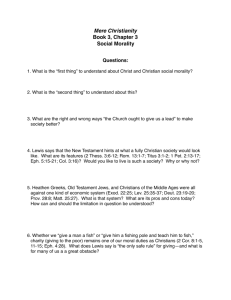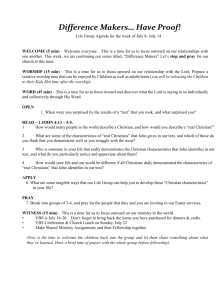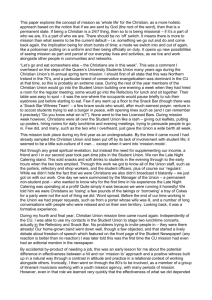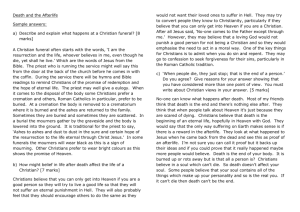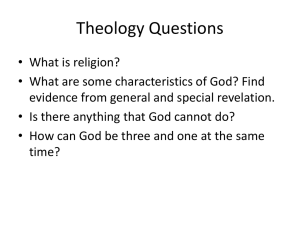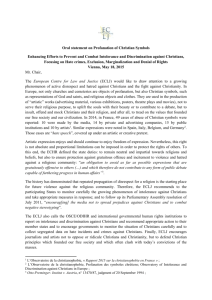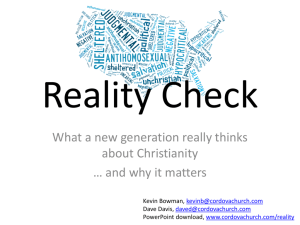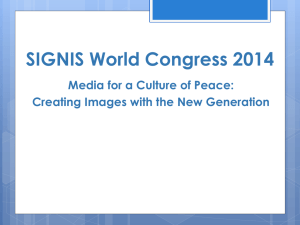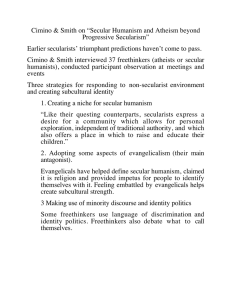Religion, Peace and Justice
advertisement
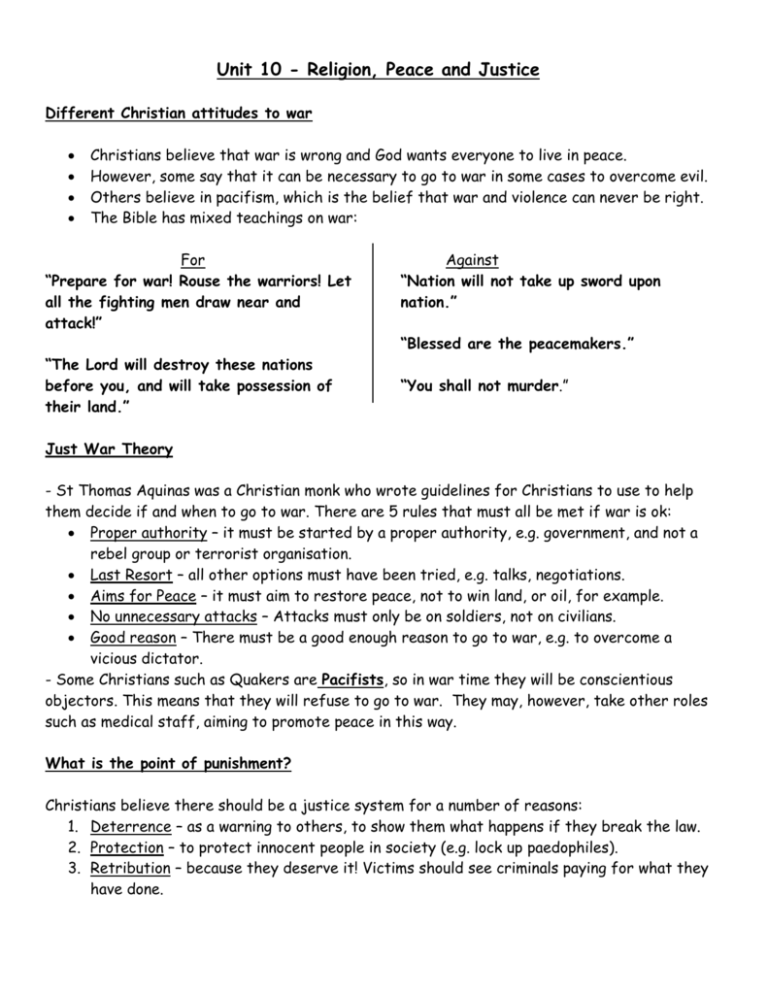
Unit 10 - Religion, Peace and Justice Different Christian attitudes to war Christians believe that war is wrong and God wants everyone to live in peace. However, some say that it can be necessary to go to war in some cases to overcome evil. Others believe in pacifism, which is the belief that war and violence can never be right. The Bible has mixed teachings on war: For “Prepare for war! Rouse the warriors! Let all the fighting men draw near and attack!” Against “Nation will not take up sword upon nation.” “Blessed are the peacemakers.” “The Lord will destroy these nations before you, and will take possession of their land.” “You shall not murder.” Just War Theory - St Thomas Aquinas was a Christian monk who wrote guidelines for Christians to use to help them decide if and when to go to war. There are 5 rules that must all be met if war is ok: Proper authority – it must be started by a proper authority, e.g. government, and not a rebel group or terrorist organisation. Last Resort – all other options must have been tried, e.g. talks, negotiations. Aims for Peace – it must aim to restore peace, not to win land, or oil, for example. No unnecessary attacks – Attacks must only be on soldiers, not on civilians. Good reason – There must be a good enough reason to go to war, e.g. to overcome a vicious dictator. - Some Christians such as Quakers are Pacifists, so in war time they will be conscientious objectors. This means that they will refuse to go to war. They may, however, take other roles such as medical staff, aiming to promote peace in this way. What is the point of punishment? Christians believe there should be a justice system for a number of reasons: 1. Deterrence – as a warning to others, to show them what happens if they break the law. 2. Protection – to protect innocent people in society (e.g. lock up paedophiles). 3. Retribution – because they deserve it! Victims should see criminals paying for what they have done. 4. Reformation – to give the person an opportunity to reform their character and become a better person, to learn from their mistakes. Christian beliefs about the treatment of criminals Christianity teaches love and forgiveness, even for your enemies. However, people must also be treated fairly according to what they have done. Criminals should, therefore, be punished, but still treated fairly. Elizabeth Fry campaigned for the fair treatment of prisoners in the 1800s, saying that they should have some level of privacy, education and to always be treated humanely. Criminals should not be judged by others. Jesus showed this by his example. A woman who had committed adultery was brought to him and the religious leaders wanted Jesus to start the stoning of her to death. He condemned this, and said that: “If any one of you is without sin, let him be the first to throw a stone at her.” (John 8) He also said “Why do you look at the speck of sawdust in your brother’s eye and pay no attention to the plank in your own eye?” (Matthew 8) This suggests that we should not be quick to point out the faults of others as we all have faults of our own. What do Christians believe about Capital Punishment? (the Death Penalty) Some say it is ok for serious crimes: “Anyone who attacks his father or mother must be out to death.” (Exodus 21) Some say it is never ok to take a life, as life belongs to God: “You shall not commit murder.” Christian response to social injustice Social injustice is where different people in society get treated differently. Christianity teaches that it is wrong to mistreat the weak and the poor, or indeed to treat anyone differently, as we were all made equally in God’s image. The Bible teaches that travellers on your land should be treated like relatives: “When an alien lives with you in your land, do not ill-treat him.” (Leviticus 19) Amnesty International is a charity which works towards freeing unjustly imprisoned people. It was founded by a Christian who was a lawyer in 1961. Many Christians are members, campaigning to free those who have had unfair trials and are being treated differently to others in society. Liberation Theology is the name of a Christian movement who try to put religious beliefs about justice into action. They may do this through groups like Amnesty International, or other charities like Oxfam and Mencap.
